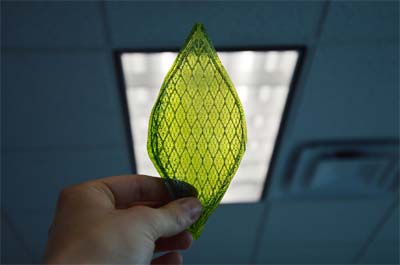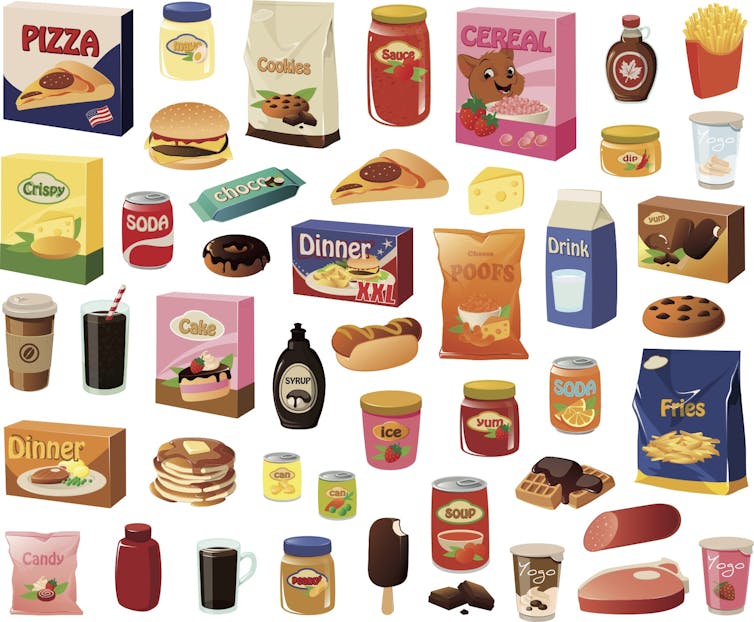
Content
Welcome to the Club of Amsterdam Journal.
The Future Now Show about Fashion Technology with Anina Net
“Anina Net is a former international model now based in San Francisco and Beijing with 10 years’ experience creating a bridge between the east and west, fashion and tech.
Based on permanent innovation 360Fashion Network, has been supporting fashion designers and companies with disruptive technologies including smart fashion maker kits, e-textiles, mobile apps, augmented reality, virtual reality shopping, 3D printing, among others.”
Felix B Bopp, Founder & Chairman
Food system needs a revolution, not tinkering around edges by the ultra-processed producers


By Norah Campbell, Associate Professor in Marketing, Trinity College Dublin and Francis Finucane, Personal Professor of Medicine, National University of Ireland Galway
Eating ultra-processed food is definitely bad for you, a recent study has confirmed. In the experiment, people were fed either ultra-processed or unprocessed food, with meals matched precisely for calories, salt, sugar, fat and fibre. Those on ultra-processed food ate more and gained more weight within two weeks.
This finding puts two torpedoes in the notion that “all calories are the same”. Recent studies have linked ultra-processed foods to obesity, cancer, heart disease and early death.
Most foods need some level of processing, such as freezing or pasteurisation in order to prolong shelf life, food safety and commercial viability, but “ultra-processed” products have little or no intact “food” remaining. Rather, they are made principally from already processed commodities, such as potent sugars, modified oils and salts and they undergo an array of further processes such as emulsification, thickening and carbonating. No longer really foods, they are better thought of as formulations.
One strategy to make ultra-processed products less harmful is to reduce the amount of salt, sugar and unhealthy fats in them through what is known as “reformulation”: redesigning an existing processed food product with the objective of making it healthier. Reformulation could help if it had adequate scope and intensity – and it may act to bolster other sugar, salt and fat reduction strategies such as taxes or improved product labelling. But while about a dozen countries have mandatory salt and trans-fat limits, none have set legal limits for sugar and saturated fats in foods.
Food reformulation has been around since the early 1980s, and it has always been a business opportunity for large food brands to compete for health conscious consumers. Only recently – since the mid-2000s – has it become a high-level strategy for food companies seeking to proactively adopt it to avoid mandatory nutrient limits. Countries all over the world now collaborate with the food industry to reformulate ultra-processed foods – a partnership that has received widespread and enthusiastic endorsement from senior policy makers. A recent food industry report to the Irish government on putative improvements in diet resulting from industry reformulation is a case in point.
But we have found what we feel are selection biases, ecological fallacies and inappropriate study design that we argue make the inferences about the benefits of industry-led reformulation in this report unsound. Others have described how methodological weaknesses limit the policy “relevance” of similar industry reports. In seeking to lead and influence national dietary strategies, the food industry promotes two consistent narratives: that reformulation is enormously difficult and expensive, and that it must happen slowly because consumers will react negatively to dramatic changes in taste.
So what exactly is wrong with industry-led reformulation? We think it has four serious dangers.
1. A PR strategy
Because reformulation has been framed by industry as a series of voluntary commitments, big food actors across the world look like they are doing government and society at large a massive favour, all the while burnishing their corporate images. Indeed, the websites of ultra-processed food companies prominently feature reformulation. Consider, for instance, Mondelez’s “commitment to improve the nutritional content of our most loved brands”. We argue that this discourages faster progress towards the promotion of significantly healthier diets.
2. Industry saviours
Industry-led reformulation stages the food industry as the saviour from our obesity problem. It places them as a central authority which can speak reliably and legitimately about nutrition goals with governments. Food brands speak convincingly about how much sugar, salt or fat they extract from national diets.
The Irish reformulation report for example, states that between 2005 and 2017, beverage companies removed 10 billion calories from the annual diets of the country’s 4.8m people. But it is silent about how many calories the companies are responsible for introducing to the diet in the first place.
This mirrors industry development of low tar cigarettes, which were an ineffective, tokenistic industry-led solution to the public health crisis that smoking presented. In the same way, voluntary reformulation of unhealthy food products that are making so many of us sick risks delaying more substantive strategies to get rid of the most harmful products altogether.

Alexander Weickart/Shutterstock.com
3. A false picture
The ultra-processed food industry reformulates existing products while adding more to the food system. It is constantly creating new products such as cereal bars or “snackfections”); new formats which masquerade as portion control but actually increase snacking (bites, thins, share size); new eating occasions (Domino’s World Pizza Day, Cadbury’s Friendship Day); new category expansions (biscuits for breakfast, meat snacks) and new retail concepts.
A recent study by the Food Safety Authority of Ireland found that while there were indeed some decreases in the amount of salt and sugar in the category of “baby foods” in the country, there were whole new classes of foods created for babies that it deemed “inappropriate”: products that normalise snacking in babies and young infants. We need to measure not just reformulation at a product level, but how many new ultra-processed foods are being produced, to get a true picture of the changing food system.
4. Status quo bias
Status quo bias happens when a baseline is mistaken for a standard to strive towards. The Irish reformulation strategy is a good example: if Irish children are eating 101g of added sugar per day, it will take about 300 years to reach the recommended intake of 25g at current rates of decline. Such bias contributes to policy inertia, where it is imagined that the food system can be tinkered around with, rather than needing to be fundamentally revolutionised.
Industry-led reformulation has become a public relations strategy – a goodwill gesture that enhances the dominance and legitimacy of the ultra-processed food category. The ultra-processed concept is not challenged. It is inadvertently legitimated as attention is focused on changing the formulas of energy-dense, nutrient-poor foods instead of working out ways to replace them altogether.
Some of the ways that governments might intervene include subsidies for fruits and vegetables, tax breaks for local food co-operatives and food growers, school and adult education. Ultimately, cultural norms need to change so that people have more time to think about what they eat – and to cook it.
This article is republished from The Conversation under a Creative Commons license.
BioSolar Leaf


We all love food, but while our population is growing, Earth’s limited natural food resources are strained by climate change, leading to the current increase in global hunger, undernutrition and food prices.
Our mission is to accelerate the global transition to sustainable food by producing the most sustainable and best healthy food ingredients through the most advanced organic cultivation system, driven by nature’s power!
The world’s first ‘BioSolar Leaf’ has been developed to remove greenhouse gases from the environment by purifying the air through the photosynthesis of microscopic plants,whilst generating breathable oxygen. The innovative technology has been developed Imperial College London together with the start-up company Arborea
The Future Now Show
Shape the future now, where near-future impact counts and visions and strategies for preferred futures start. – Club of Amsterdam
Do we rise above global challenges? Or do we succumb to them? The Future Now Show explores how we can shape our future now – where near-future impact counts. We showcase strategies and solutions that create futures that work.
Every month we roam through current events, discoveries, and challenges – sparking discussion about the connection between today and the futures we’re making – and what we need, from strategy to vision – to make the best ones.
September 2019
with
Anina Net
Anina Net is a former international model now based in San Francisco and Beijing with 10 years’ experience creating a bridge between the east and west, fashion and tech.
Based on permanent innovation 360Fashion Network, has been supporting fashion designers and companies with disruptive technologies including smart fashion maker kits, e-textiles, mobile apps, augmented reality, virtual reality shopping, 3D printing, among others.
The Future Now Show
Credits
Anina Net, Founder, anina.net
www.anina.net
Founder, 360Fashion Network www.360fashion.net

Sea Agriculture
An ever-growing demand for fresh seafood has pushed wild fish stocks around the world to the brink. In Florida, scientists and other experts are farming the sea in an attempt to alleviate some of these fishing pressures. “Aquaculture,” or “fish farming,” is the cultivation of marine or freshwater organisms.
News about the Future

Kernza® Grain: Toward a Perennial Agriculture
Kernza® grain plants are deeply rooted. Walking through an established field of mature plants, they are about chest high above the soil. The roots can extend 10 feet or more beneath the soil surface, more than twice the depth of and in greater density than annual wheat roots. In good conditions, the long, slender seed heads can contain more seeds than an annual wheat head, but Kernza® seeds are currently about 1/5th the size of most conventional wheat seeds.
Kernza® grain grows best in cooler northern latitudes. Although intermediate wheatgrass was consumed in ancient times, new varieties of Kernza® grain can enable farmers to grow it profitably at scale and bring its environmental benefits to modern farms and diets.

Artificial Heart
The BiVACOR is a total artificial heart designed to take over the complete function of a patient’s failing heart. Smart controllers adapt the pump operation to changes in the patient’s activity.An anticipated device life of up to 10 years or more. Small enough for a child, powerful enough for an adult. A small external controller and batteries to give patients freedom
The future of sound, noise & music

DW Documentary
Be it sound, music or noise, the future will be audible. In a world full of visual stimuli, human hearing is underestimated. As scientist Trevor Cox puts it: “Without the acoustic aspect, everything is nothing.”
As soon as you hear threatening music or sound effects in a film, you know disaster is lurking, even if the onscreen images suggest nothing of the kind. Be they pure sound, music or even raw noise, acoustic events are powerful. “Brain Beats” visits researchers, musicians and other people who are particularly interested in sound. Our journey spans an arc from evolutionary research to the question as to the role the ear should play if mankind ever leaves the earth and sets off into outer space. Innovative musicians like Alva Noto or Simonne Jones talk about their experiences, as do deaf children who can now experience music holistically through newly available technologies. A sound walk with Trevor Cox demonstrates how complex and revealing even everyday sounds are. And we discover you may soon no longer have to rely on your own ears to hear things at all.
Recommended Book

Enlightenment Now: The Case for Reason, Science, Humanism, and Progress
by Steven Pinker
Explores how our increasingly evidence-based and cooperative societies, and science and technology themselves, are accelerating human progress around the world. In those places where it isn’t, we need better foresight, ethics, and collective action to rise to our challenges. Our next-gen web and personal AIs, as learning systems, will help us greatly in that regard. No book is perfect, and Pinker unfortunately downplays the corrosive effects of plutocracy. He also does not see the growing problem (and the solutions) for creating safe, moral artificial intelligence. Otherwise, this book is excellent.
Aquanaut, the Underwater Transformer
“It’s not a secret. The offshore industry pays way too much for subsea robotics service. That’s because the robot isn’t fit for purpose. We think that another class of vehicle is needed. It’s not an AUV. It’s not an ROV. We built an all-electric underwater transformer, Aquanaut. We then implemented novel technology in order to remove the need for a tether while still ensuring command authority with an operator. Welcome to subsea robotics 2.0.
Turn a valve. Use a subsea tool. Scan structures. Aquanaut can accomplish these advanced subsea operations with just a few mouse clicks. Our operators use mouse clicks, not joysticks, to operate Aquanaut. Our multi-mode machine vision system is comprised of acoustic, optical, and laser based tools that are processed into a dynamic point cloud using the computing power available onboard the vehicle. The point cloud is then compressed using our revolutionary new compression technology which offers compression ratios between 5,000:1 and 75,000:1 (Depending on the scene quality). The operator maintains supervisory control over the vehicle whether onboard a support ship or from the comfort of our home office.”

Houston Mechatronics is an innovative company driven to solve our customers’ most difficult problems. Started by former NASA roboticists who created the very technologies used in space today, we are on a mission to provide cutting-edge services and solutions that make work environments safer, improve processes and increase profits.
Climate Change Success Story: Swedish Forests

The Swedish Forest Agency is the national authority in charge of forest-related issues. Our main function is to promote the kind of management of Sweden’s forests that enables the objectives of forest policy to be attained.
The forest policy places equal emphasis on two main objectives: production goals and environmental goals. As the administrative body in charge of implementing the forest policy, we cooperate with representatives from the forest industries and environmental sector towards the goals of economically and ecologically sustainable forestry.
We are placed under the Ministry of Enterprise and Innovation. Each year we receive direction from the government with goals and the financial framework for the organization
Futurist Portrait: George Friedman

Think of Geopolitical Futures as your world-wide risk support team. Founded in 2015 by internationally respected strategist and best-selling author, George Friedman.
Geopolitical Futures tells you the continuing story of the future. We do that by charting the course of the international system.
We have a model, a way of looking at the world, based on the assumption that impersonal forces – things like geography, politics, economics, military capability and demography – govern world leaders not the other way around. It’s an important distinction you don’t see anywhere else. Because when you know what compels and constrains a leader, you can predict how the nation they lead will behave. When you know how nations behave, you can anticipate how the international system will change.
When you can anticipate how the international system will change, you begin to see world events as we do: in the context of a much longer and more interesting story than the mainstream media can tell, one that traces dispassionately the rise and fall of world powers.
Why Does It Matter?
Geopolitical Futures filters the noise, allowing you to focus on what’s important to move your lives and your business forward – allowing you to see the opportunities as well as risks.
GPF provides geopolitical forecasts that allow you to understand what really matters in the world and what doesn’t.
We give you a daily guide to understand the events around you.
We help you monitor and react to global events to reduce your risk and maximize your investments.
Our Track Record
Our track record speaks for itself. We have been able to accurately predict the economic and political crisis in the EU, the economic decline in China, the re-emergence of Russia, the confrontation over Ukraine. Everything we publish is rooted in geopolitics and flows from our forecast, which lays out our predictions for the year – or for the years ahead. We believe in transparency. We update the forecast regularly in our Forecast Tracker, mistakes along with successes, for all our readers to see.
The Next 100 Years: A forecast for the 21st century by George Friedman
2013








Customer Reviews
Thanks for submitting your comment!